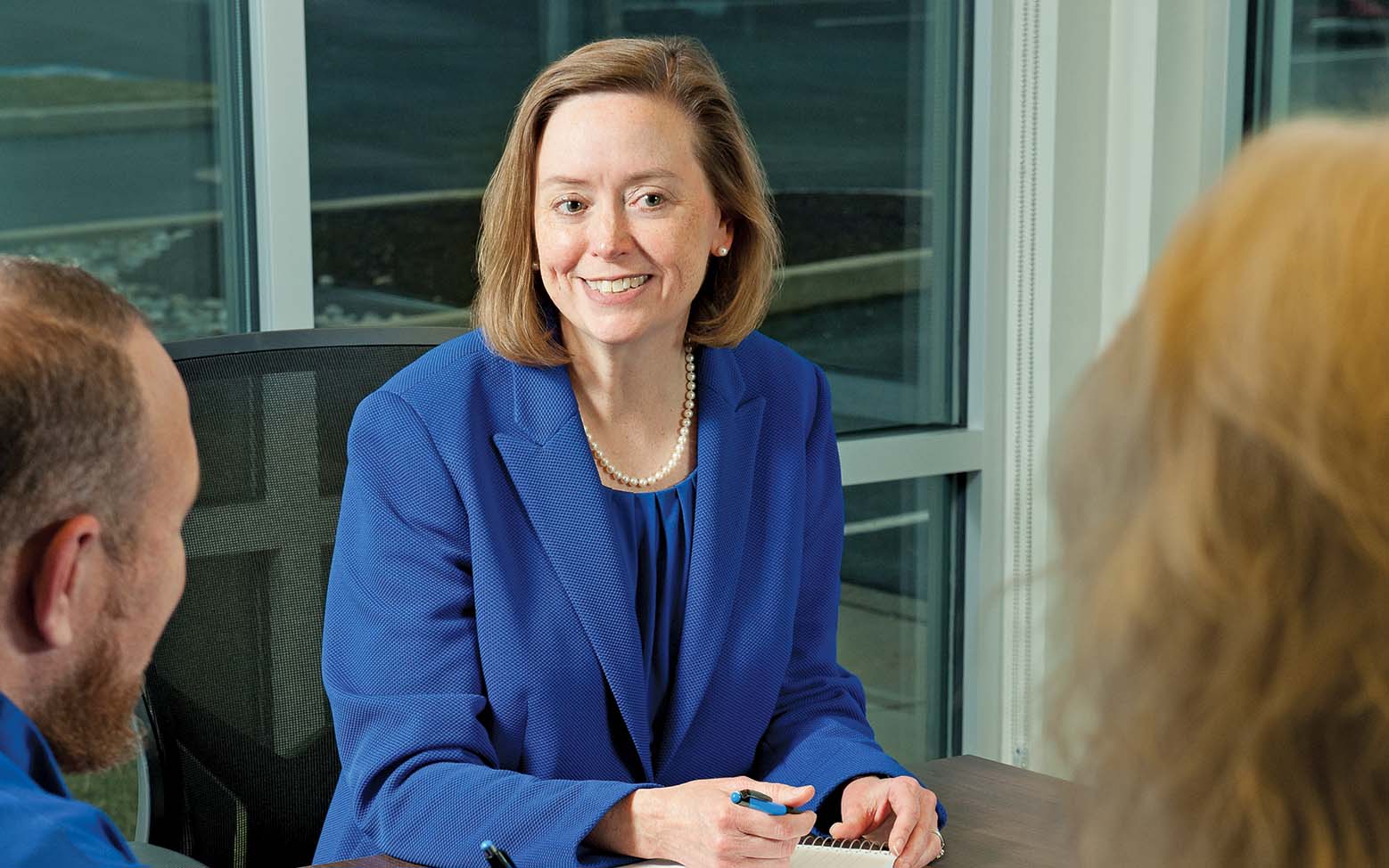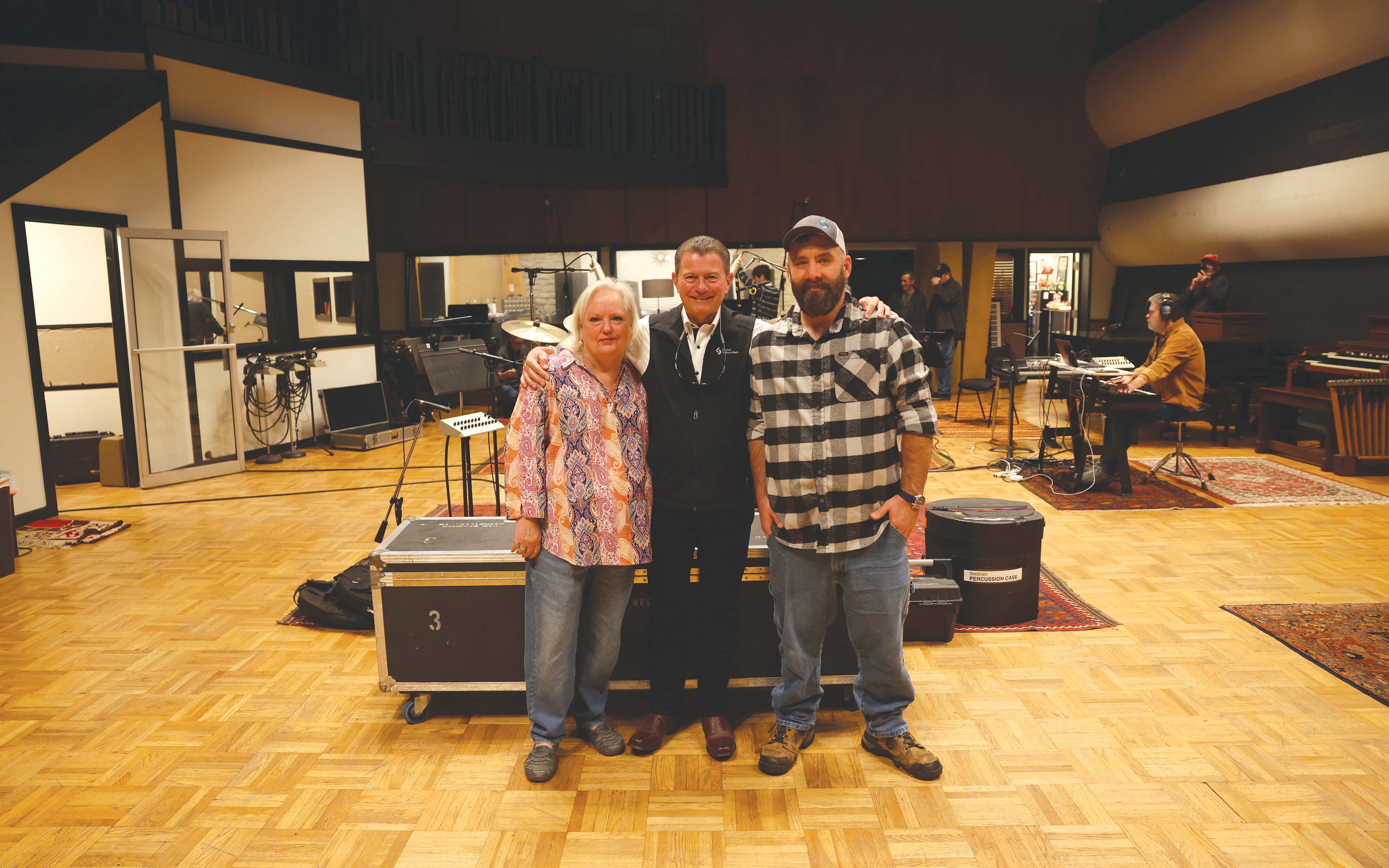Dream First Bank empowers agriculture, entrepreneurial and commercial business customers with educational seminars and programs designed to fuel business success.
Furthering Education at Dream First Bank
0624 Success 2k
June 12, 2024 / By William Atkinson
Dream First Bank empowers agriculture, entrepreneurial and commercial business customers with educational seminars and programs designed to fuel business success.
Dream First Bank in Johnson, Kan., has always understood that being part of the nine communities it serves in southwest Kansas comes with a great responsibility: to do more than just meeting the financial needs of its customers.
“We also realize our community entails not just the cities and towns in which we are located, but the entrepreneurial, agricultural and commercial businesses that provide the backbone and economic engine of southwest Kansas,” says Chris Floyd, president and CEO of the $640 million-asset community bank.
More than money
As far as Dream First Bank is concerned, when it comes to serving customers, there is more that needs to be done than just lending money and providing other financial services—especially to farmers and small business owners. The community bank wants to take things a step further by providing relevant, comprehensive and detailed education that will help as much as possible to ensure their customers’ growth and success.
As a result, Dream First Bank offers more than a dozen education‑based seminars and other programs to ag and commercial business customers. These include: beginning and advanced Quickbook seminars, AgPhD seminars, family business succession planning, marketing differentiation, ag program payments seminars, community roundtables and more.
In addition, the community bank offers opportunities for participants to see and hear economic outlooks from David Kohl, professor emeritus of agricultural finance and small business management and entrepreneurship at Virginia Tech, in Blacksburg, Va.
From inception to impact
Dream First Bank began offering these seminars and programs in 2013, when it built a partnership with Roxanne Emmerich, a national speaker specializing in workplace organizational culture, leadership and communication, and the author of Thank God It’s Monday: How to Create a Workplace You and Your Customers Love.
“We learned to focus on how we provide value for our customers and seek ways to find solutions to their problems,” says Floyd.
Most of the programs are either presented at third-party locations or via Zoom. “We typically have two- to three-hour presentations,” he states. In terms of participation, audience size can range anywhere from 25 to more than 300.
“Depending on the year, we do two to four seminars,” Floyd says. “A lot depends on whether we can get the right speakers at the right times of the year.”
Are one or two of the programs more popular than the others? According to Floyd, Quickbooks seminars have always been full.
“We have done these in classrooms at our local community college and online through Zoom, so that our attendees can work through scenarios with their own business setups,” he says. “In addition, Dr. David Kohl has also always been very popular. We have had him several times over the last several years.”
A third particularly popular program is the series on family business succession planning.
“These are always very well‑attended, because it seems as though it is an issue that nearly everyone has to deal with or has just dealt with,” says Floyd.
Positive feedback
In terms of participant reactions and responses to the programs, Floyd has found attendees are thankful that the bank took the time to provide these resources for them that they can use, and that the programs and seminars give them ideas to help their businesses.
While all programs are helpful and useful, some go well beyond initial expectations. Floyd recalls one such anecdote. Recently, pandemic-era stimulus bills changed rules on the Employee Retention Tax Credit.
“Because of the seminar we presented on this topic, two customers were able to get through the program and each received over a $1 million refund before the program ended up slowing down,” says Floyd. “Previously, other advisors had told them they were not eligible, when in fact they were.”
Always experimenting
In terms of plans for future changes in the programs, Floyd says: “We are always looking for ways to improve them and introduce new resources to bring to our communities. COVID changed some of our attendance patterns, and we are always experimenting with different ways to get information to our customers.”
Subscribe now
Sign up for the Independent Banker newsletter to receive twice-monthly emails about new issues and must-read content you might have missed.
Sponsored Content
Featured Webinars
Join ICBA Community
Interested in discussing this and other topics? Network with and learn from your peers with the app designed for community bankers.
Subscribe Today
Sign up for Independent Banker eNews to receive twice-monthly emails that alert you when a new issue drops and highlight must-read content you might have missed.
News Watch Today

Join the Conversation with ICBA Community
ICBA Community is an online platform led by community bankers to foster connections, collaborations, and discussions on industry news, best practices, and regulations, while promoting networking, mentorship, and member feedback to guide future initiatives.












